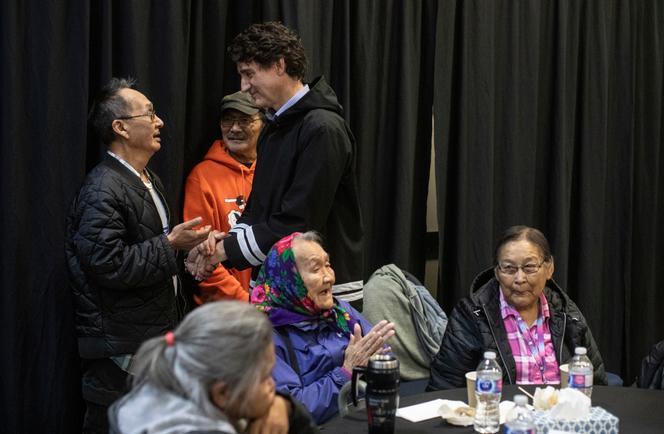

LETTER FROM MONTREAL

In Canada, September 30 is dedicated to "truth and reconciliation" with Aboriginal communities. Recommended by the Truth and Reconciliation Commission, this day, which has been a statutory holiday since 2021, "honors the children who were never returned home and Survivors of Residential Schools, as well as their families and communities," it is explained on the Canadian government's web page about the event. "Public commemoration of the tragic and painful history and ongoing impacts of residential schools is a vital component of the reconciliation process," it also states.
Alongside events across the country, the day aims to remind people that more than 150,000 First Nations, Inuit and Métis children were taken from their families and forced to attend residential schools. Although most of the 140 institutions ceased to exist by the mid-1970s, the last federally run residential school closed its doors in the late 1990s. According to the Truth and Reconciliation Commission, 6,000 children died while attending these schools. But experts say the real number could be much higher.
For several years, organizations have been searching for missing residential school children and unmarked graves. The Survivors' Secretariat plays an important role in this process. It is dedicated to the search for missing Indigenous students from the Mohawk Institute in Brantford, Ontario. First run by the Anglican Church of Canada, then by the federal government, the institute took in aboriginal children for 142 years, a record in the country. Until its closure in 1970, some 15,000 children from 20 First Nations communities were forced to attend this school.
On September 30, 2024, the Survivors' Secretariat sounded the alarm in the face of declining federal government subsidies. "We shouldn't be held over a barrel ... begging for funding," said Executive Director Laura Arndt at a press conference at Parliament House in Ottawa.
On July 19, Justin Trudeau's government had in fact announced that it was going to cap the Community Support Fund for Missing Children of Residential Schools at 500,000 Canadian dollars (around €336,000) per year per organization, down from the previous level of $3 million. Faced with the outcry caused by this announcement, Ottawa reversed its decision in August and reinstated the original ceiling.
Nevertheless, organizations maintain that amounts allocated to research are insufficient. Since its creation in 2021, the support fund has approved 146 funding applications for a total of $216.6 million, but in its latest budget, the federal government pledged "only" $91 million for the next two years. "It has become evident that Canada does not have a clear understanding of the scope and immensity of the work underway," the Survivors Secretariat reported. "Many existing programs (...) will have to be discontinued or drastically reduced," it warned. Several projects will not be launched, while others are likely to be delayed, diminishing the hope of survivors to know the truth in their lifetime. This "further broken promise (...) seriously undermines the community's faith in reconciliation or justice for the disappeared," said the organization.
You have 36.71% of this article left to read. The rest is for subscribers only.
